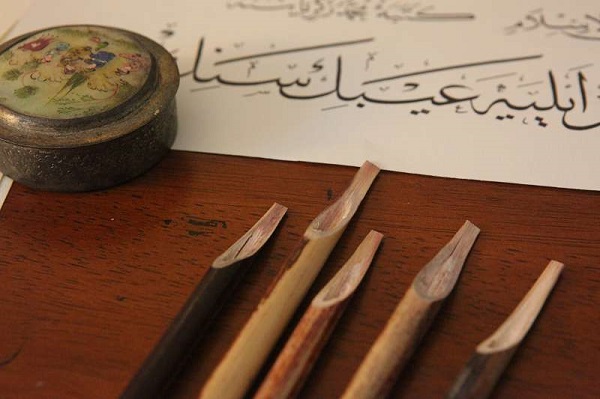FWP:
SETS == POETRY
Obliquely but effectively, through the power of implication, Ghalib is talking here about his own 'skill/art' [hunar], poetry. All the commentators rightly take the verse to be reporting an error or a mistake. Yet nothing in the verse overtly tells us so, or expresses repentance, regret, etc. (The verb samajhnaa leaves the question of accuracy open; on this see {90,3}.)
In {60,7} Ghalib speaks more explicitly of the 'merchandise/goods of poetry' [mataa((-e su;xan], and emphasizes the intimacy of offering it for sale: he himself goes along with it-- but only after seeing what the buyer is like.
In the present verse, the problem seems to be that there are no buyers, or at least no worthy or truly appreciative ones. This is a theme commonly expressed in Ghalib's letters, and a belief that he held-- sometimes bitterly, sometimes ruefully-- throughout most of his life. He knew he was a great poet, he knew he was achieving superb and unique effects-- yet he had to scramble for patronage in a most humiliating way that was entirely contrary to his own ideal self-image. And even when he scrambled his hardest, results were barely forthcoming. Time after time, the patrons on whom he placed his hopes let him down. The story of his life makes sad reading in this respect. See the following verse, {99,10}, for an example of his praise of a patron.
In addition to seeking patrons closer to home, he even composed an ode (in Persian, of course) to Queen Victoria. As he himself described its contents in Dastanbu, 'In this petition it was requested that, as the kings of Rum, Iran and other countries had rewarded their poets and well-wishers by filling their mouths with pearls, weighing them in gold and granting them villages and recompense, the exalted queen should bestow upon Ghalib, the petitioner, the title of Mihr-Khwan, and present him with the robe of honour and a few crumbs from her bounteous table--that is, in English, a "pension"' (p. 48). But fortune did not favor his plea; the Rebellion of 1857 destroyed this hope along with many others.
Since his death, however, Ghalib's star has shone brighter
and brighter. I hope he would be pleased with this website.

Nazm:
I consider that just as I am a friend of skill/art, so are all the people of the age. And through this error I have considered skill/art to be an attractive property. By revealing his error in judgment, the poet has expressed the meaning that in this age skill/art is unmarketable. 'Upon oneself' [apne uupar] is the idiom, and in Lucknow they don't say apne pah . (104)
== Nazm page 104